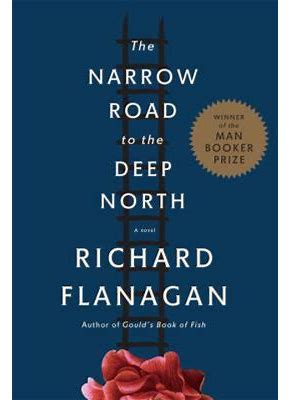
Haibun.
It’s a genre I had never heard of, but the structural soul of this novel. A popular haibun by the revered Japanese poet Matsuo Bashó shares nearly the same exact title.
A haibun, from what I’ve learned so far, is based on the reporting of history. But it also contains imagistic writing, poetic material in some way intensely expressed like haiku yet in prose. It can relate a journey, a life saga, or even minutes, a moment. While Flanagan’s book is kindred in spirit and has these elements, it is first and foremost a novel.
Which includes in this case, a story of war and being a prisoner thereof. Aussie prisoners in WWII are enslaved by the Japanese army and forced to build a railroad through an impossible jungle, all in the name of the Great Emperor. The novel includes accounts from the days both before and after war. Near the climactic end, the protagonist is assumed dead. But no, he has survived his long, grueling trip (Spoiler Alert) and becomes a renowned international physician. Back home in Australia, married and settled, he happens to see the woman he once loved. She has seen him too, we find out later. Neither knows, neither acknowledges. The man’s heart is reaching an end, like Zhivago sighting Lara from a bus. She is ill. The two pass by on a bridge, going in opposite directions. It is all part of the tragedy.
Flanagan’s account is wrapped around, no – it features, such an extraordinary love story. It’s delivered to us in unapproachably vivid scenes with simple yet complex writing (like a haiku). It is the best writing of a love affair written by a male author that I can recall in a very long time.